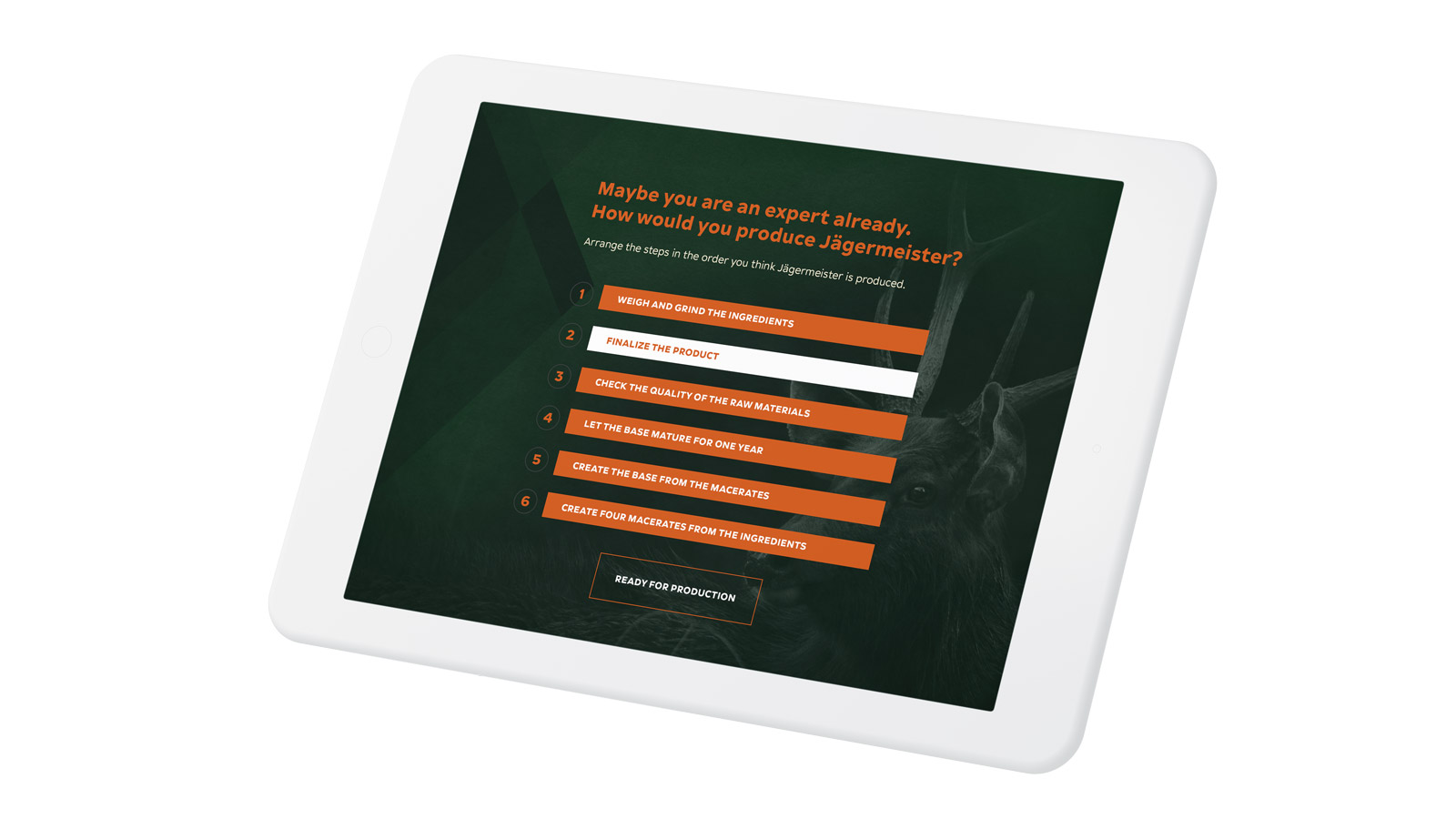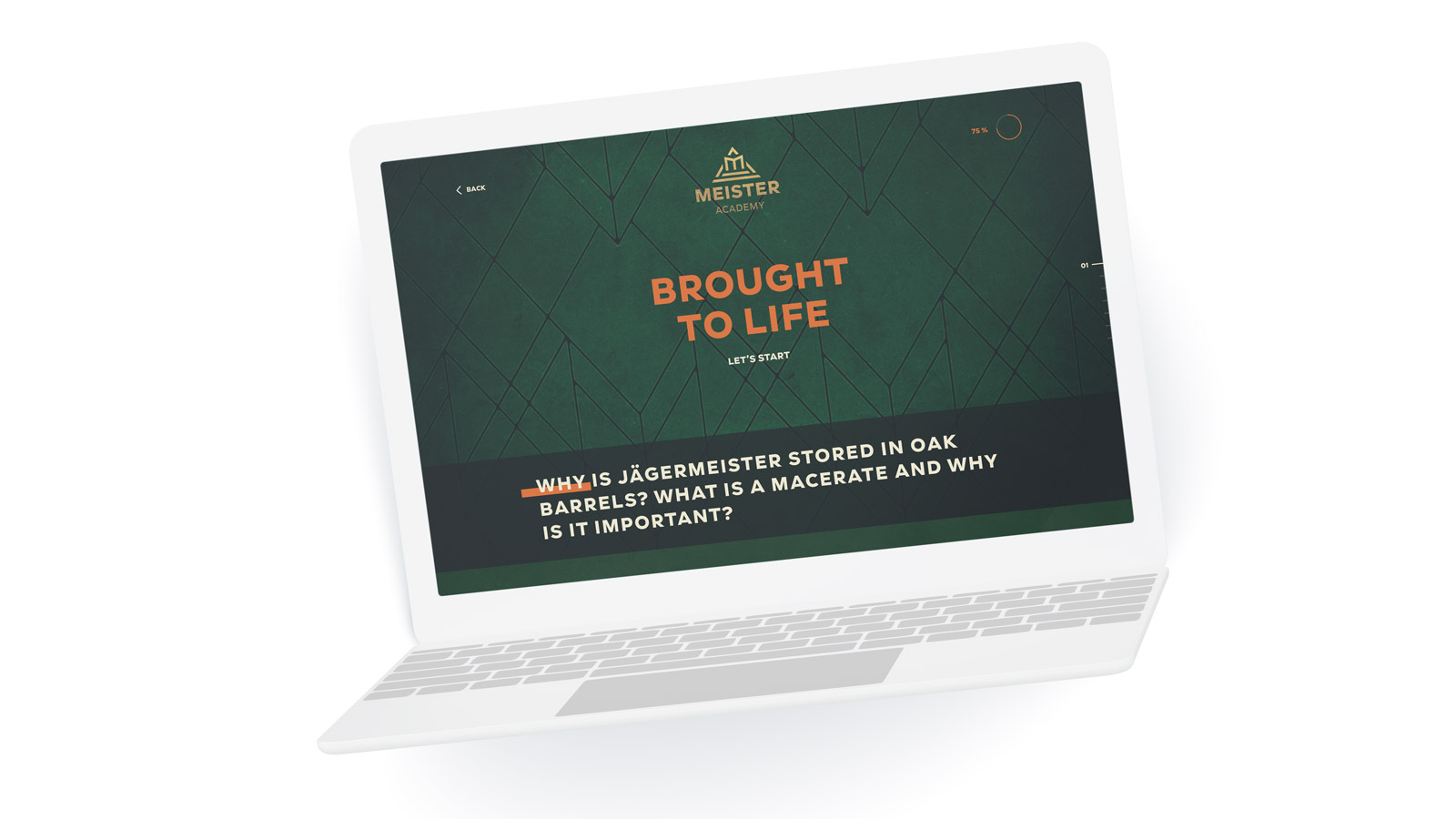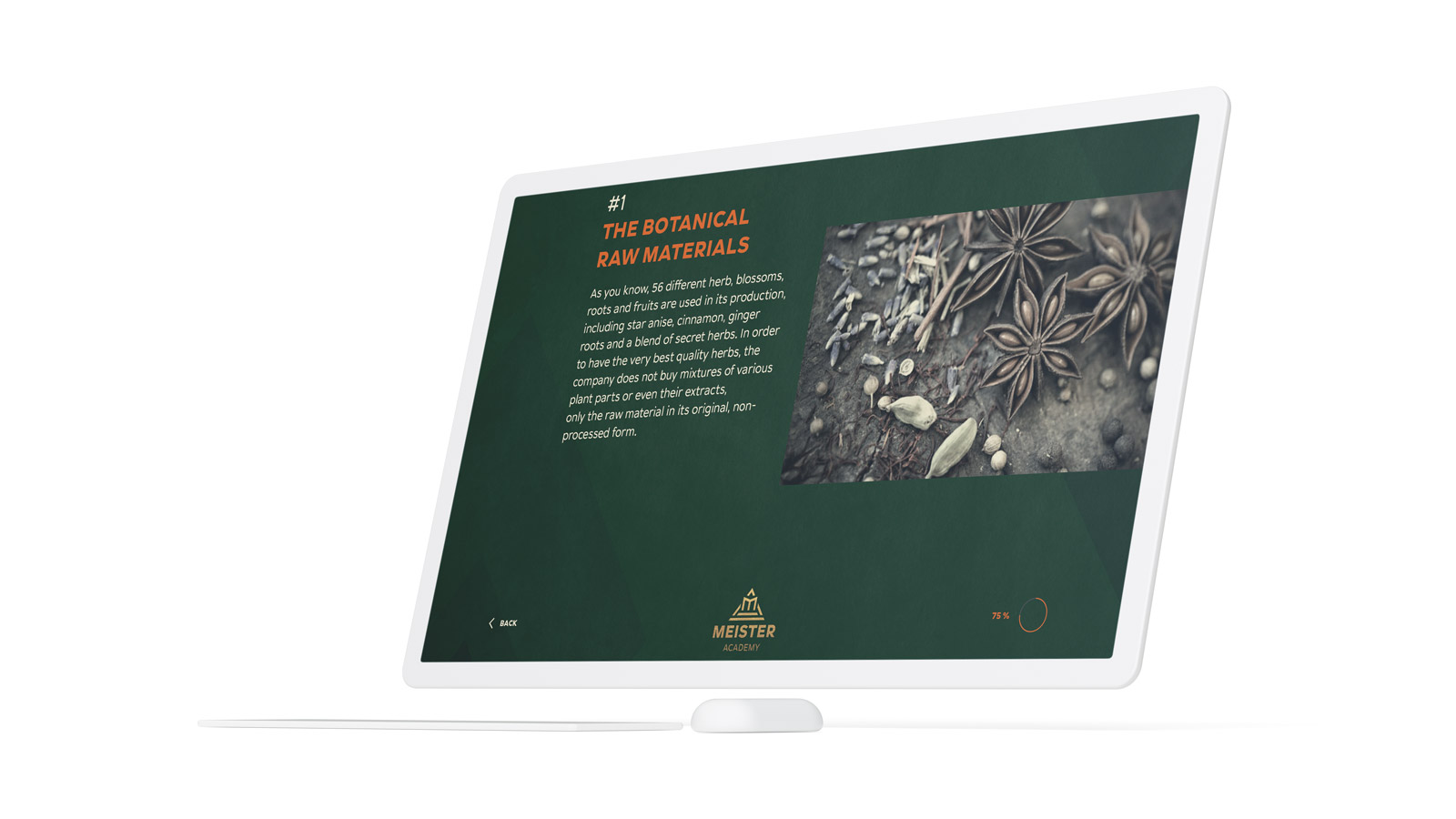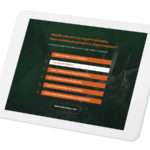With dedicated data to long-term growth and better forecasting

Quality “made by STIHL” is a core brand promise that dates all the way back to 1926. Since then, the one-man operation founded by Andreas Stihl in southern Germany has blossomed into an international mechatronics company.
Today, STIHL is the world’s top-selling chainsaw brand. The company employs over 20,000 people and has a presence in 160 countries across five continents.

Um dieses Video sehen zu können, müssen die Marketing Cookies aktiviert werden. Klicken Sie auf den Playbutton, um diese zu akzeptieren. Mehr Informationen finden Sie in unserem Cookie Banner und in der Datenschutzerklärung.
How to share decades of knowledge
All STIHL tools, whether chainsaws, lawnmowers or hedge clippers, are high quality, safe and easy to use, and built to last. Therefore, many people keep their STIHL tools their whole life and have them serviced and repaired at their local specialised dealerships.
Consequently, employees at the 50,000 dealerships worldwide must be able to repair any older model at any time. And to enable that, employees and sales partners need access to detailed information on all STIHL products. This information needs to be in digital form, quick to access, and available worldwide.

One learning platform for all
STIHL needed to ensure staff could access its product and service training courses at any time, from anywhere worldwide. So, in 2020, the company decided to implement the learning management system (LMS) developed by imc AG.
imc business consultant David Jost advised STIHL on the implementation of the imc Learning Suite. “The fact that STIHL is structured into several national operating companies posed a particular challenge,” he says. “Between them, they had six different systems that now had to be migrated in standardized form to our LMS. Hence, we had to discuss the requirements in great detail and run through a range of scenarios.”
STIHL e-learning and training manager Leandra Deininger was the customer contact for this project.
“We also attached huge importance to delivering a quality learning experience,” she says. “We wanted all users – from internal STIHL staff to dealers – to be able to find exactly the learning content they need, quickly and easily. And for that, the system had to be simple and intuitive to get to grips with.”








Better forecasting thanks to learning analytics
After the global rollout of the system and the progressive retirement of the legacy systems, STIHL intends to go a step further. It wants to put its data to work. This is where the imc Learning Platform’s learning analytics dashboard functionality comes in. It can be used to visualize learning success.
As David Jost explains, this is about more than tallying up the number of courses completed. Or even calculating average training hours. It’s about providing answers to questions like the following:
- How can we enable our course managers to make sound decisions based on solid data?
- How can we enable learners to achieve optimal learning?
- How and in what way do professional development courses contribute to corporate objectives?
Once you have answers to these questions, learning programmes can be aligned with long-term corporate strategy. The impact of this corporate learning on achievement of the corporate strategy can then be visualised using learning data.

Not just good – a Meisterpiece: How Jägermeister combines LMS and Blended Learning

Established as a vinegar factory and wine trader in the Lower Saxony town of Wolfenbüttel in 1878, the company launched its first herb liqueur under the name of Jägermeister in 1935. The secret recipe comprising 56 herbs remains unchanged from those early days.
Mast-Jägermeister SE grew from a small family business to an international organisation, and is now in the fifth generation of family ownership. In 2020, the company recorded global sales of 89.6 million 0.7 litre bottles, now selling the main product Jägermeister in more than 150 countries.
Jägermeister has around 1000 direct employees. Resellers and external distribution partners around the world add to the large number of people requiring training.
Top-quality training in line with the brand
Before corona, Jägermeister took a rather traditional approach to learning and knowledge-sharing. In most cases, new employees, distribution partners and resellers were invited directly to the headquarters in Wolfenbüttel to help them learn about the brand and understand it better. There, they would receive all the necessary training on the products and get a feel for the brand.
Yet, even before the pandemic, it was clear that this system needed to be optimised, and Jägermeister started to look into procuring a learning management system (LMS). Professional training courses in e-learning format were also on the wish list back then.
The range of training to be covered by the LMS, individual learning nuggets and web-based training (WBT) went beyond the offering for external distribution and trading partners. For instance, different target groups from apprentices and trainees to the CEO needed to gain an in-depth understanding of e-commerce.
At the same time, a coherent and strong brand image that all employees identify with is a top priority for Jägermeister. Therefore, the learner experience was considered crucial.

A blended learning journey masterpiece
Jägermeister decided to use the imc Learning Suite as its learning platform. The well thought out extended enterprise scenario in combination with the clear module structure was a major deciding factor in favour of imc. The Learning Suite also scored with its customisable configurability and great system reliability.
Simply sharing knowledge is not enough – it also has to be packaged right to reach all target groups and meet their needs. To this end, imc created a sophisticated blended learning scenario for Jägermeister.
Kathrin Heidler, Instructional Designer at imc, analyses the collaboration with Jägermeister: “What set the project apart is how complex it was. A blended learning journey embedded in classroom training, web-based training, performance cards and our BizQuiz is far from routine – even for us!
We were really able to go all out with this project. It was great fun helping to design such a complex project using a large variety of techniques.”








Learning that doesn’t feel like learning
The feedback for the initial platform tests was all positive. Users were especially taken with how the e-learning content triggered an emotional response. The consensus among the employees: Once you log in to MeisterAcademy, the training courses don’t feel like learning. The direct integration of LinkedIn learning courses was also received very favourably, as it gives employees an even greater choice of courses.
Philipp Terstesse, Manager Global Trade Marketing at Jägermeister, summarises: “Our goal was to create a learning experience that takes a new approach and motivates learners. The learner and employee experience were extremely important to us.
We firmly believe that our digital ambitions go a long way towards shaping the future of our brand. We are thrilled to have a strong partner in imc who will stay by our side as we embark on this journey into the future together.”


A future-proof LMS and rapid e-learning programme for 50,000+


Um dieses Video sehen zu können, müssen die Marketing Cookies aktiviert werden. Klicken Sie auf den Playbutton, um diese zu akzeptieren. Mehr Informationen finden Sie in unserem Cookie Banner und in der Datenschutzerklärung.
The Birmingham 2022 Commonwealth Games
The Commonwealth Games brings nations together in a colourful celebration of sport, culture, and human performance. Ahead of the complex international event, Birmingham 2022 Commonwealth Games commissioned imc to implement a highly scalable learning management system (LMS). What was need was a future-proof digital learning platform, plus an easy-to-use content creation tool to generate e-learning materials at speed.

Starting from scratch under time pressure
The Commonwealth Games have a mammoth training requirement. With a workforce of over 50,000 employees, volunteers and contractors to upskill rapidly, Birmingham 2022 needed an LMS to streamline the training process. The team had to start from scratch just nine months before the event with no existing LMS in place.
A sustainable digital learning platform
Systems and contracts carry over from one Commonwealth Games to the next. For that reason, Birmingham 2022's aimed to achieve a better knowledge transfer between each organising committee. The team sought a solution that could be reused for the 2026 and 2030 Commonwealth Games.
Meeting the learning needs of a diverse audience at speed
Time was limited before the Birmingham 2022 Commonwealth Games, so the team needed everything to come together rapidly – without any risk of scope creep. Implementation of the LMS had to remain on brief, on budget, and on time.
Another challenge were the needs of a very diverse audience of learners. Different ages, languages and levels of technical ability among the volunteers and employees required the LMS to be extremely user-friendly and fully intuitive to navigate.

A future-proof LMS and rapid e-learning programme
All employees, contractors and volunteers involved with the Birmingham 2022 Commonwealth Games attended face-to-face orientation sessions. The purpose of the four-hour sessions was to help the workforce familiarise themselves with the procedures specific to each venue. A blended learning programme was the best approach to deliver the learning. In order to protect the limited amount of face-to-face training time available, the team used the LMS to host other bite-size training and support.
Integration with a workforce management system
The LMS, branded as 'B-Bright', pulled user data from Rosterfy, a volunteer and workforce management system. For the Birmingham 2022 Commonwealth Games, a simple data transfer service imported the data from Rosterfy. The plan is to integrate the two systems for future games.
Rapid e-learning creation with imc Express
imc Express is an easy-to-use authoring tool that takes the hassle out of content creation. Content creators can easily import text from Microsoft Word, add multimedia content, drag and drop images, and build interactive learning activities to engage learners. To support the most inclusive Commonwealth Games ever, video content was automatically subtitled, making sure it was accessible to the entire workforce.
A future-proof success story
In total, over 50,000 users were trained. More than 85,000 course enrolments by 16,000 users were registered in the first 16 days after launch. Meaning that on average, each user signed up for four or more courses. This is a testament to the quality and value of the LMS, as all content on B-Bright was voluntary, yet it still kept people coming back for more learning.
Beyond 2022, the LMS will be reused for the next two Commonwealth Games, saving significant time and money.



Hunger for Knowledge: Ensuring a Successful LMS Rollout
DoN: a best practice case study

DoN is Austria’s leading privately owned catering company. The name DoN comes from food entrepreneur Josef Donhauser, who founded his first catering business back in 1992.
His motto was “Tailored taste” – a principle that inspires the companies in the DoN group and their 2,000-strong workforce to this day.
The DoN group has garnered success in many areas, including contract catering, travel and lounge catering, and event catering. Its successes also include several restaurants and the well-known “fresh casual” brands VAPIANO and Fat Monk.
Implementing a new learning platform: First impressions count!
During the pandemic, DoN, like many companies, realised that the days of exclusively in-person learning and professional development were over. But the existing open-source solutions were no longer sufficient for the increased demand. The situation called for a learning management system (LMS).
At the same time, DoN was looking for a solution for quickly generating high-quality learning content. A technology that was easy and intuitive to use. A product that allowed all employees – whether kitchen hands, restaurant chefs, on-board service personnel, or logistics staff – to access exciting learning content from any device, anytime.

Cross-organisational collaboration and motivation, with quizzes, chocolate, and imc Express
DoN quickly found the right learning management system: the imc Learning Suite, courtesy of imc Austria.
But the project managers at DoN, Petra Kügele and Martina Riepl, soon realised that a learning platform on its own was not enough. After all, what’s an LMS without content?
Petra Kügele explains: “The LMS was ordered in October 2022 and was rolled out six months after that. But we knew, even before the rollout, that we needed to actively get our people on board. We didn’t want to simply implement a system and then leave the employees to deal with it on their own. We need to keep the workforce highly motivated about learning and professional development, so we wanted an overall communication package.”
DoN was also looking for an easy-to-use authoring tool that supported the independent and rapid creation of learning content. The idea was to be able to integrate new content into the system on a regular basis. And the new imc Express authoring tool fitted the bill perfectly.
A textbook LMS rollout and sustained employee motivation
DoN was very clear about its goals. It needed to have specially created content ready and available in the LMS the minute the latter was rolled out. It wanted to build up curiosity among its employees so that they were hungry for the learning content and would remain positive about the rollout.
To achieve these goals, the project team put together a coherent overall communication package. It also worked closely with other departments, such as HR and marketing.
The project team actively engaged with the employees at their places of work. They showed them the initial results. They explained the idea behind the platform and what blended learning and the pre-existing features were all about. And they handed out branded “stress heart” key rings featuring QR codes, leading to a quiz created using imc Express. As well as humorous anecdotes, this quiz served up an array of fun facts about the DoN group. For example, do you know how many metres of pasta VAPIANO produces? (Answer: 40.5 km of spaghetti and linguine daily.)






This combination of personal workplace outreach, branded give-aways, and networking across various departments meant that the employees were extremely favourably disposed towards the LMS even before its rollout.
All the hard work paid off. DoN’s employees could have been annoyed about the new system – a common response to change in the business world. But they weren’t. Instead, they were excited about it, and they are highly receptive to new learning content. The project team also produced explanatory videos on the LMS – using imc Express – and made them available in the system.
It’s a true success story, as Martina Riepl explains: “People are even asking when we’ll be uploading the next content into the system. That shows our strategy has paid off and that we’ve established positive framing around professional development here at DoN. And we’ll be working to make sure it stays that way!”


Resource Saving E-learning, by and for Employees

The UNIQA Group is one of the leading insurance groups in its core markets of Austria and Central and Eastern Europe.
It has around 21,000 employees and exclusive sales partners serving over 16 million customers across 18 countries.
.
Wanted: A sales training course that’s learner-focussed and quick to deploy
In the past, training at UNIQA was very hands-on and traditional. The training documents were created by individual employees who were experts in their fields. These courses often took many weeks and months to create. In most cases, they were too long and inflexible and they offered UNIQA’s teams nothing in the way of modern, digitalised learning.
The company needed a way of harnessing the knowledge of its experts and getting this to its sales teams. This was no small ask, given the employees in question are spread across 18 countries and many work remotely. The solution had to be fast, readily accessible, dynamic and highly efficient.

Rapidly deployable, modern e-learning courses – created by employees and trainers themselves
As a trusted provider to UNIQA for over 20 years, imc was the obvious partner for building an online training campus. The campus is a digitalised platform that makes sales training and development programmes more accessible and efficient for employees. Digitalisation of these programmes means that employees can now engage in learning at any time and from any location.
To fill the online campus with content as quickly as possible, UNIQA implemented the imc Express authoring tool. With this tool, anyone can create training content quickly and easily. It was an instant hit with the test group (sales employees and trainers):
“imc Express helps us make learning mobile”
“The tool is very time and resource efficient”
“With imc Express, content can be created quickly and easily using AI”




imc Express: an easy-to-use authoring tool that streamlines learning
“imc Express is self-explanatory, interactive and multimedia-friendly. It’s actively helping us achieve our goals around voluntary and independent learning,” says UNIQA digital learning specialist Mario Kopic.
It does this by taking the hard work out of creating learning content and by delivering modern, interactive learning experiences. The resulting content, which can be accessed from any device, caters to different learning styles, whether visual or auditory.
In addition, imc Express allows course authors to collaborate on content – during the actual content creation process. No more time-consuming coordination and feedback processes.
The successful implementation of this project in Sales made people elsewhere at UNIQA aware of imc Express. Consequently, departments like Group Operations, Learning & Development and HR are now also making extensive use of the tool for their digital training needs. And what do these departments see as the main benefit of imc Express? Its intuitive usability. imc Express is easy to use, enabling experts to spend more time imparting their knowledge and less time thinking about the tool itself.


Ensuring high quality across global operations

The Hansgrohe Group is a major player in the bathrooms, kitchens, and wellness industries, generating €1.4 billion in sales annually. The company lives and breathes premium quality and design. It needed a best-in-breed learning platform to ensure the highest quality delivery across all its global operations with over 5,400 employees in 34 companies and 20 sales offices.
How to achieve a consistent delivery worldwide
The Hansgrohe Group is committed to top quality. Delivering on this commitment entails communicating the quality message to all employees at multiple locations around the globe. To that end, the company needed to guarantee the same high level of expertise in all its divisions, whether in the USA, Europe, or China.
Face-to-face professional development was another challenge: shift workers in production had few options for attending courses held at remote locations during their normal working hours.

A top-tier distributed learning system
In 2006, Dynamic Media GmbH (later merged with imc) developed an LMS for Hansgrohe. Since that time, all employees have been able to learn independently, free of time constraints. They have access to industrial safety courses, fleet training programmes, and diverse learning offerings for topics in IT security, quality management, and staff development. More recently, the company introduced its employee app, giving its production workers easy access to the learning platform and relevant training content.
But that’s not all. In 2021, Hansgrohe adopted the imc LMS. This opened up a whole new category of learning to its installers, resellers, designers, and others. These users can now access a wealth of e-learning content and information on the company’s entire hansgrohe range and its AXOR luxury range.
Each division of the Hansgrohe Group is able to design its own training content. The company uses imc’s content authoring tools – Content Studio and imc Express – to create engaging e-learning content. Hansgrohe chose Content Studio because of its impressive user-friendliness and wide range of options for interactions.
Thanks to imc Express, the company can now automatically translate user-generated content and integrate it directly into the LMS. This is possible because imc Express is browser-based. The system also includes approval workflows to ensure that only approved high-quality content gets shown to learners.

Flexible corporate training a big hit with employees
During the pandemic, Hansgrohe hit on the smart idea of using their imc LMS as a vaccination booking tool. The platform gave employees and their families an easy and convenient way of booking appointments, enabling them to take advantage of the company’s in-house vaccination offer.
The project manager in charge, Jasmin Gargano, is pleased with how the system worked.
“Our main criterion was to give our employees a fast, bureaucracy-free booking system so they could protect themselves and their families. And the imc Learning Suite seemed the perfect choice for the necessary central administration capability. Our employees were already familiar with the system, so they found the booking process very easy. The resulting personal data was deleted from the system afterwards. Needless to say, the offering was very well received by our workforce.”
At Hansgrohe, learning ties in with the company’s core value of mutual appreciation and respect. A key tenet of the corporate culture is for all employees to be empowered to learn independently. Thanks to the adoption of the imc Learning Suite and imc authoring tools, this is now a reality at all the corporate locations.
The company also continually expands its learning paths and optimises internal processes with regard to skill and competency level. Hansgrohe plans to focus ever more closely on the needs of its employees to provide them with even better training.


A holistic learning management experience for Australia’s national rugby league
Reinvigorating the learning centre of Australia’s second largest professional sporting association

The National Rugby League (NRL) is the world’s premier rugby league competition run by the Australian Rugby League Commission. It is the second biggest professional sporting association in Australia and is the dominant sport in the states of New South Wales and Queensland.
With sixteen teams in Australia and New Zealand, the NRL is synonymous with Australia’s sports culture and is the best-attended rugby league in the world. It was founded in 1998 as a merger of two competing leagues, but its roots reach right back to 1908.

THE BACKGROUND
A learning management solution with limited functionality
The NRL needed to reinvigorate its NRL Learning Centre, which provided training for coaches, referees, trainers and volunteers.
The Learning Centre also offered accreditation programmes for aspiring NRL referees, and
LeagueSafe: an online safety awareness course for parents and volunteers at children’s games, which was designed to help create a healthy and safe rugby league environment for young players.
At the heart of the LMS was an outdated Content Management System (CMS) which at the back end did not give users much autonomy over their content or integrate effectively with the league’s membership database.
Modernising the Learning Centre System
There were several challenges for the NRL with their current suite of technology, and they were using multiple systems for differing purposes, many of which were not performing well.
The LMS included a coach reaccreditation programme which was poorly organised and did not effectively address many different skill levels. It also included a referee training programme that had a high dropout rate, which indicated a poor user experience.
In addition to the LMS they were using for the NRL Learning Centre, the league also needed to use a third party system to manage all of their certifications, and it was proving very difficult to track and report on these internally.

A fully-integrated NRL Learning Centre portal
Our solution was the implementation of a new LMS to combine the functions of the two previous systems it was using. The new system enables users by giving them greater control over content, certification management, and syncing with the membership database
The system consists of an interactive e-learning programme using imc’s Chatbot framework, with options for all experience levels. The programme contains scenario-based learning modules that account for different personality types and the challenges they present at games.
The Coach Reaccreditation and Referee Training programmes are now also using imc technology to provide an entertaining and informative journey to users. The new system provides students with the opportunity to learn through a variety of real-world scenarios that best fit their interests (for example, age-appropriate training for children or teenagers). Each learner has access to video examples of real-life, correct and incorrect performances.
As part of the redevelopment, we reinvigorated the referee-accreditation programme with real game footage and used an authoritative subject matter expert (SME), Kasey Badger, to attract referees from all walks of life.
A rejuvenated approach
This project successfully helped to rejuvenate the learning approach for our client, and the LMS solution was delivered both on time and within budget.
Not only did NRL meet its original objectives, but post-implementation, there was an uplift of the participation rates for online learning and positive feedback from users of the upgraded NRL LeagueSafe courses.


When Bricklayers and Gardeners Create Their Own Digital Content: A success story starring imc Express

Arbeit und Leben Berlin-Brandenburg DGB/VHS e.V. is a non-profit adult education organization.
It is supported jointly by the Berlin-Brandenburg branch of Germany’s DGB trade union confederation
and Berlin’s adult education schools (VHS). It was initially founded to support the democratic restart
– including by means of political education – after 1945.
Today, its educational and advisory services impart knowledge, promote critical thinking, and encourage participation in society.
It empowers people who are typically disengaged from educational and advisory services and therefore excluded from work and society.
To turn learners with limited literacy skills into producers of learning media.
Arbeit und Leben (English: work and life) Berlin-Brandenburg provides support to people from many backgrounds. These include apprentices, job-seekers, low-skilled workers, and people with limited digital literacy and limited skills in reading, writing, and math.
To combat the skills shortage, it aims to help people from many different (educational) backgrounds through further training and improved preparation for workforce entry.
Accordingly, it trains instructors and apprentices and advises businesses and educational institutions on implementing targeted learning in the workplace.
But it wanted to incorporate modern, digital learning methods into its offering. And for that, it needed a tool that was easy for teaching staff to integrate into their teaching practice. The idea was to facilitate greater long-term retention of knowledge by turning the learners themselves into producers of learning media.

Collaboration using AI and automated translations
After much comparison and testing, Johanna Lambertz from Arbeit und Leben’s vocational training department chose the authoring tool imc Express.
“We were impressed with imc Express right off the bat,” she says.
“The tool is intuitive and easy to use, particularly for people with low literacy and media skills or from migrant backgrounds. And the great thing for our teaching staff is that its integrated AI takes care of layout, dubbing and translation. What’s also really helpful is the option to summarize things in simple language with its built-in ChatGPT features.
What’s more, the integrated image database means that our instructors don’t have to worry about legal issues like copyright. They can prepare their teaching materials and then invite the learners to generate content – which the learners find extremely motivating.”

87 new items of learning content in the space of three months
So, how has it all worked out in practice?
“The learning units we created in cooperation with the Steinbeisschule Stuttgart school illustrate this perfectly,” Johanna Lambertz explains. “We shot some videos with young apprentices. This content was then used to create learning nuggets showing in detail the steps involved in building a wall. Other learning videos deal with construction site safety, as well as specialist tools and how to use them.
“These subjects are much easier to show visually than explain in words, so the videos are great. We are also currently producing learning content for horticulture under a partnership with the foundation Stiftung für Mensch und Umwelt (English: foundation for Humans and Enviroment) in Berlin that concerns itself with environmental questions.
“To give another example: a job centre employee used the tool to create a learning unit that shows her clients how to use the centre’s website. Similarly, the interactive elements, such as multiple-choice questions and flipcards, are ideal for integrating occupation-specific prose styles and specialist vocabulary.”
Five months on, imc Express has been used to create 140 learning nuggets. In addition, 44 instructors are now using the tool on a regular basis.
Arbeit und Leben Berlin-Brandenburg is now looking at using imc Express to support even more learners in sectors such as construction and nursing. To quote Johanna Lambertz:
“The potential applications are virtually unlimited.”

More about the project

ABConnect - "Connecting work, education, opportunities. Networking, professionalising and strengthening actors in work-oriented basic education for digital teaching".

Responsible for the eVidoe media workshop: Arbeit und Leben Berlin-Brandenburg DGB/VHS e.V.

Funding rate of the funding body:
The ABConnect project (funding code W1497BAOG) is funded by the Federal Ministry of Education and Research as part of the "National Decade for Literacy and Basic Education 2016 - 2026".
Culture Change Through E-Learning on the Factory Floor

The RONAL GROUP is a leading manufacturer in the international market for light alloy wheels and has about 7,000 employees worldwide.
Founded in 1969, the Swiss-headquartered company has 13 production locations on three continents and is an OEM for all the world’s leading manufacturers of cars.
RONAL produces some 18 million wheels annually, and generated sales of EUR 1 billion in 2021.
Cross-departmental training for all workers, from white to blue-collar
“We make the best wheels in the world.” The RONAL GROUP’s vision statement is an uncompromising commitment to top quality. To live up to this claim, all the company’s employees need to be committed to quality and work to defined standards.
This applies to all employees, wherever they are based, whether in Switzerland, Taiwan, Mexico or elsewhere, and whatever their role, whether office or factory worker. Everyone throughout the RONAL GROUP needs to live and breathe quality so that the company can live up to its quality promise and meet the demanding standards of the automotive industry.
That was one part of the challenge. At the same time, the company wanted to digitalise its systems for documenting training completion. It wanted to do away with the labour-intensive, manual processes of keeping lists and gathering, signing and scanning paper certificates. Going digital would not only give the company a clearer overview of its training landscape, it would also reduce the error rate inherent in manual processing.

An enterprise-wide blended learning strategy
In order the better to administer, sustain and document its training courses, the RONAL GROUP decided to digitalise all learning-related processes using a learning management system (LMS). First and foremost, the managers in charge of the project at RONAL were looking for an LMS that could be integrated into the company's existing system landscape. Moreover, it should be easy and intuitive to use.
As well as the LMS itself, they were looking for a provider who could develop tailored training courses and enable the company to create its own learning content.
imc Learning Suite, the LMS provided by imc Learning, met all of these requirements. It has now been implemented at the RONAL GROUP as an employee development centre (EDC). The EDC is now used to administer all the company’s online training courses, as well as analogue courses.
Where once the various steps involved – everything from participant invitations by email to course completion to certification and verification – could only be accomplished by switching between media. Now they are all digitalised and can be coordinated via a single system.
HR managers with the relevant access privileges can now log in to get an overview of which training courses have been started or completed, and by whom. And employees can use their personal log-in credentials to check their learning progress. As well as this, all employees can independently search for and request courses from within the platform.

The beginnings of a culture shift through targeted anytime, anywhere training
Philipp Leupoldt from Group Learning & Development at the RONAL GROUP provides support for the learning platform and also had a hand in the development of the first digital training courses. He has noticed that carefully targeting the training to key groups of employees encourages new ways of thinking that lead gradually to a culture shift throughout the company.
This is clear from two e-learning programmes in particular.
One is a training course on quality awareness which, in terms of methodology and didactic approach, is specially designed for blue-collar workers and can be undertaken either using tablets while on the shop floor or using PC workstations located nearby.

The other programme is a training course for all RONAL GROUP employees designed to raise awareness of social engineering – the risk of being manipulated into disclosing sensitive information, such as passwords. The online content is supported by a poster campaign that specifically targets blue-collar workers.
The posters, which are displayed in staff cafeterias, production halls, common rooms, and staff facilities, summarize the learning content in the form of a comic strip. They also feature a QR code that employees can scan to receive further information on an internal page.
Leupoldt is pleased with the outcome. “We can see that the various measures and digital training courses are slowly giving rise to a genuine shift in culture,” he says. “Many of our blue-collar workers have demonstrated a matter-of-fact and pragmatic attitude to digital learning. The feedback from many other of our employees has been positive as well. Interest in work-related content is increasing, and the innovative methods are fostering independent learning.”


Upscaling an organisation’s LMS in the time of crisis

The Department of Health plays a critical role in the health system of the state of Victoria in Australia and is responsible for meeting the health needs of Victorian locals.

THE BACKGROUND
Capability-building a new response unit in record time
With the rise of the coronavirus pandemic in Australia in March 2020, the Department had a sudden, urgent need to upscale their learning management system (LMS) to accelerate the transfer of knowledge to a COVID-19 task force.
The speedy nature of the national emergency created many major challenges, which included recruiting new staff, implementing various new systems, the rapid development of new learning content, training an influx of newly recruited staff members, and the ongoing challenge of developing processes for combatting an unknown and quickly evolving virus that was threatening the health of Victoria.
Dealing with many unknowns
The major challenge facing the implementation of new training content was the scale of which COVID-19 was evolving throughout Victoria in 2020. This then lead to the up-scaling of the Department’s COVID-19 response group, who also had to pivot away from face-to-face training to consuming their mandatory compliance training and other important information via a largely online environment.

Building the COVID19LMS in several days
The Department’s solution was to work with their existing LMS vendor imc to develop an additional system (referred to as the “COVID19LMS.”)
The LMS was set up and ready to use in several days to assist with the rapid response to COVID-19. It was set up to accommodate a rapidly expanding workforce who were in need of individualised training through a role-based learning pathway.
A successful system that is still in use today
The successful delivery of COVID19LMS enabled the Department staff to access and complete their compliance training, in rapid response to the unfolding pandemic.
After onboarding the initial COVID-19 response team onto the system in March 2020, the Department has continued using the LMS for compliance training and it continues to provide a critical service for the Department to this very day!
imc and the Department of Health Victoria were recognised as Gold winners in the 2021 LearnX awards, in the category Best pandemic response: Compliance Training. The international award program honours innovative and creative projects in the fields of learning and design every year.
